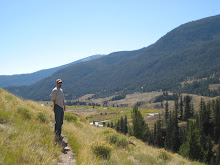
I have read quite a few articles lately on CSR’s, at first I didn’t know what this stood for…Customer Service Representative?, California State Republic?, no it’s the very sad and deceptive topic of Corporate Social Responsibility. The first article I read was in the Harvard Business Review on companies purchasing renewable energy credits as a large piece of their so called and highly popularized “social responsibility.” It is the new hip thing to do…as one article stated in The Economist, “..you don’t want to be the only CEO caught doing nothing for Africa,” when speaking about CSR plans, but back to energy… The U.S. Department of Energy is encouraging the purchase of "Renewable Energy Credits", which has become a lucrative new business where people [or companies] purchase credits claiming to produce "green energy" to supposedly offset the purchaser's use of fossil fuels and other activities which contribute to the production of carbon dioxide. Part of the money from "Renewable Energy Credits" is invested in the construction of huge windmill "plants". Huge windmill "plants" require additional electricity production by reliable coal-fired plants or nuclear plants because the electricity produced by wind is not reliable and cannot be stored. Therefore, huge windmill "plants" do not reduce carbon dioxide emissions.
So back to the HBR article, what did they have to say about this, well, on average companies are paying millions and sometimes billions of dollars to “buy” (and I use that word loosely) these “credits” to help produce renewable energy which will have a much smaller carbon footprint than standard energy usage, but most of the time this money is going into a big black void. If you think about it, who is getting this money and what exactly are they using these billions to buy or produce? The answer is nothing they can prove. The HBR says companies usually have no idea who is really getting this money or what the heck they are using it on…so does this lack of solid information bother the companies who are spending these dollars on it, not really because CSR is a front for good corporate PR, no surprise there. Then came the batch of articles on CSR plans in the most recent edition of The Economist, which mirrors a lot of what the HBR said and basically summed up that until we really have a solid idea of where this money is going, maybe it would be better to spend that money in other ways where you can see a definable result instead of the just the bottom line dwindling, but at least corporations can say they helped the economy right? Or, they can say they spent some money somewhere to someone who said they were going to help with some part of the environment, err…..
See http://www.environmentalleader.com/2006/11/10/whole-foods-sells-wind-energy-credits/for a short piece on Whole Foods and this topic.
So post your comment and let me know if you think I am totally off my rocker… ~L
So back to the HBR article, what did they have to say about this, well, on average companies are paying millions and sometimes billions of dollars to “buy” (and I use that word loosely) these “credits” to help produce renewable energy which will have a much smaller carbon footprint than standard energy usage, but most of the time this money is going into a big black void. If you think about it, who is getting this money and what exactly are they using these billions to buy or produce? The answer is nothing they can prove. The HBR says companies usually have no idea who is really getting this money or what the heck they are using it on…so does this lack of solid information bother the companies who are spending these dollars on it, not really because CSR is a front for good corporate PR, no surprise there. Then came the batch of articles on CSR plans in the most recent edition of The Economist, which mirrors a lot of what the HBR said and basically summed up that until we really have a solid idea of where this money is going, maybe it would be better to spend that money in other ways where you can see a definable result instead of the just the bottom line dwindling, but at least corporations can say they helped the economy right? Or, they can say they spent some money somewhere to someone who said they were going to help with some part of the environment, err…..
See http://www.environmentalleader.com/2006/11/10/whole-foods-sells-wind-energy-credits/for a short piece on Whole Foods and this topic.
So post your comment and let me know if you think I am totally off my rocker… ~L





